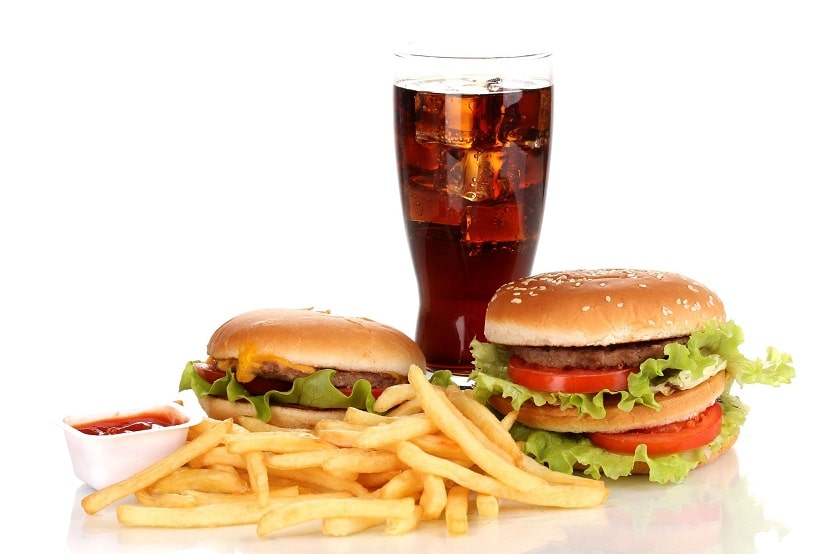Fast food addiction displays similar effects as heroin, cocaine or morphine
Part one
Every client seeking the best nutritionist in Harley street London or for a professional consultation to lose weight fast and safe arriving at one of my weight loss clinics in Harley street, Canary Wharf, London Bridge, Mayfair benefits first thing first from a very comprehensive nutrition consultation and professional lifestyle advanced assessment that is necessary to identify any body-bio-chemistry imbalances and underlying issues that caused them to possible binge or become addicted to certain foods, behaviours and putting on weight in the first place.
There are many reasons why food addictions and binge eating occur. This article breaks the ice, and releases information that could help you to make decisions that bring you closer to your goals and away from instability and addictions; please read on…
Compelling evidences published in reputable high impact medical-journals show that drug addiction, being overweight and obesity are based on the same primary neurobiological mechanisms that cause severe imbalances in our brain and body bio-chemistry.
Processed foods share many characteristics with drugs of abuse (e.g. high dose, rapid rate of absorption) and appear to be particularly associated with “food addiction.”
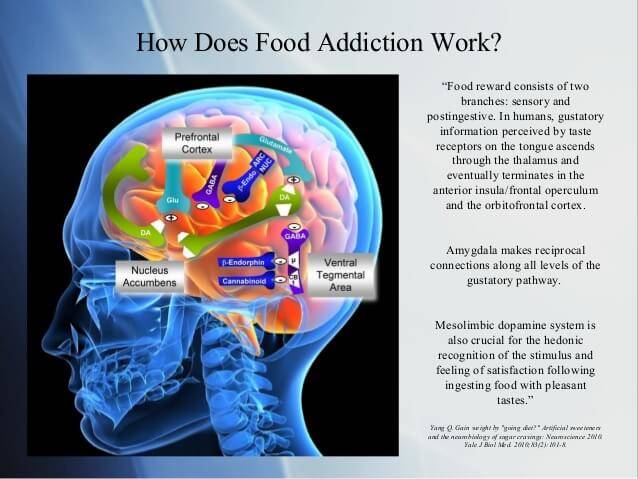
Eating fast foods regularly has a drug like addictive-effect.
Refined starches, sugary drinks like Coke, sugars and high GL foods cause both rapid rise and fall in blood sugar after consumption.
These choices triggers hunger, irritability, anxiety and even depression as they activate approximately the same regions in the brain used during drugs consumption.
High-sugary foods, including cookies like Oreos (but not limited to), high-fat fast foods and junk foods such as bacon, sausage, milk and cheesecake contain very addictive substances sharing similar addictive patterns and stimulating the brain in the same way that heroin and cocaine do and are just as addictive as drugs.
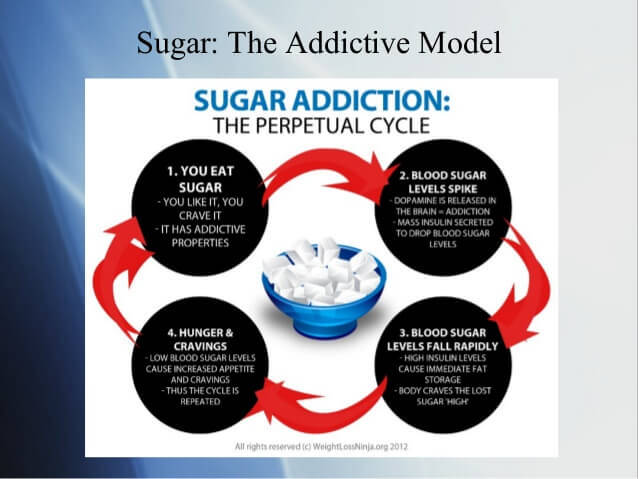
When immunohistochemistry was used to measure the level of neural activation through c-Fos (a marker measuring neural activation), it was found that high sugary foods, cookies and junk foods activated significantly more neurons in the brain’s pleasure center than cocaine, heroin or morphine.
Most people aren’t aware that certain fast foods stimulate the pleasure centres in the brain and this is creating dangerous addictive effects making people to binge and put on weight fast whilst wreaking havoc on their brain and body-biochemistry creating emotional instability, anxiety, depression and ultimately cellular malfunctions that may lead even to diabetes and cancer.
Are you still surprised why people put on weight easily these days and once introduced to it find it difficult not to eat fast foods?
The seven points discussed below are a helpful measure of signs of addiction and disruption to our body biochemistry.
Does any of these seven points apply to you?
Cravings, making up excuses in the head in order to justify eating certain foods and gaining weight fast
Suffering withdrawal symptoms if you are not eating certain fast foods for a while
Eating more and more food to reduce negative emotions or to increase pleasure while weight piles us
Not able to quit eating before getting stuffed and felling bloated
Breaking food rules repeatedly
Eating while hiding from others and weight levels goes up uncontrollably
Eating more than you intended to
If you experience any weight gains or any of these symptoms mentioned please get in touch now, – through my ( Contact Me Here Page ) SO, I Can support you arranging your comprehensive nutritional consultation and advanced life style assessment.
So, why do some people got sentenced for selling drugs but not for selling fast foods, junk foods and cookies? Interesting question…
We know now, that fast food makes people put on weight and demonstrates similar addictive dangers as drugs such as heroin, cocaine and morphine causing misery to many people and a huge bill to the tax-payer funded, NHS so, let’s discuss a bit more about addictions.
What is an addiction?
According to the Merriam Webster dictionary an addiction is “a strong and harmful need to regularly have something (such as a drug) or do something (such as gamble).”
When people have an addiction they usually feel powerless and feel as though they are unable to deal with these problems in another way, so they keep feeding their addiction, thinking it is their only option. Addictions are a very serious issue in modern times and are linked with serious mental health problems.
Therefore addictions should always be approached with complete understanding, expert knowledge, empathy, compassion, a professional approach and genuine care in order to provide clients with a complete solution and package addressing successfully their psychological and emotional needs, and body-biochemistry.
The low dopamine D2 receptor connection (but not limited to): A study carried out by professor Paul J. Kenny and graduate student Paul M. Johnson from the Scripps Research Associate published on the March 28, 2010 in the journal Nature Neuroscience discusses in great details the molecular mechanisms that lead people into compulsive eating and over eating, a major cause of unhealthy weight gain and obesity.
From controlling our attention to regulating movement and indirectly stimulating the production of breast milk the neurotransmitter dopamine gives people pleasure but also serious trouble.
This is because this brain neurotransmitter is directly linked with pleasurable experiences coming from dangerous junk-food chemical concoction or any pleasurable recreational activities or drugs like heroin, cocaine or sex and our brains remembers it and wants to keep the act reoccurring.
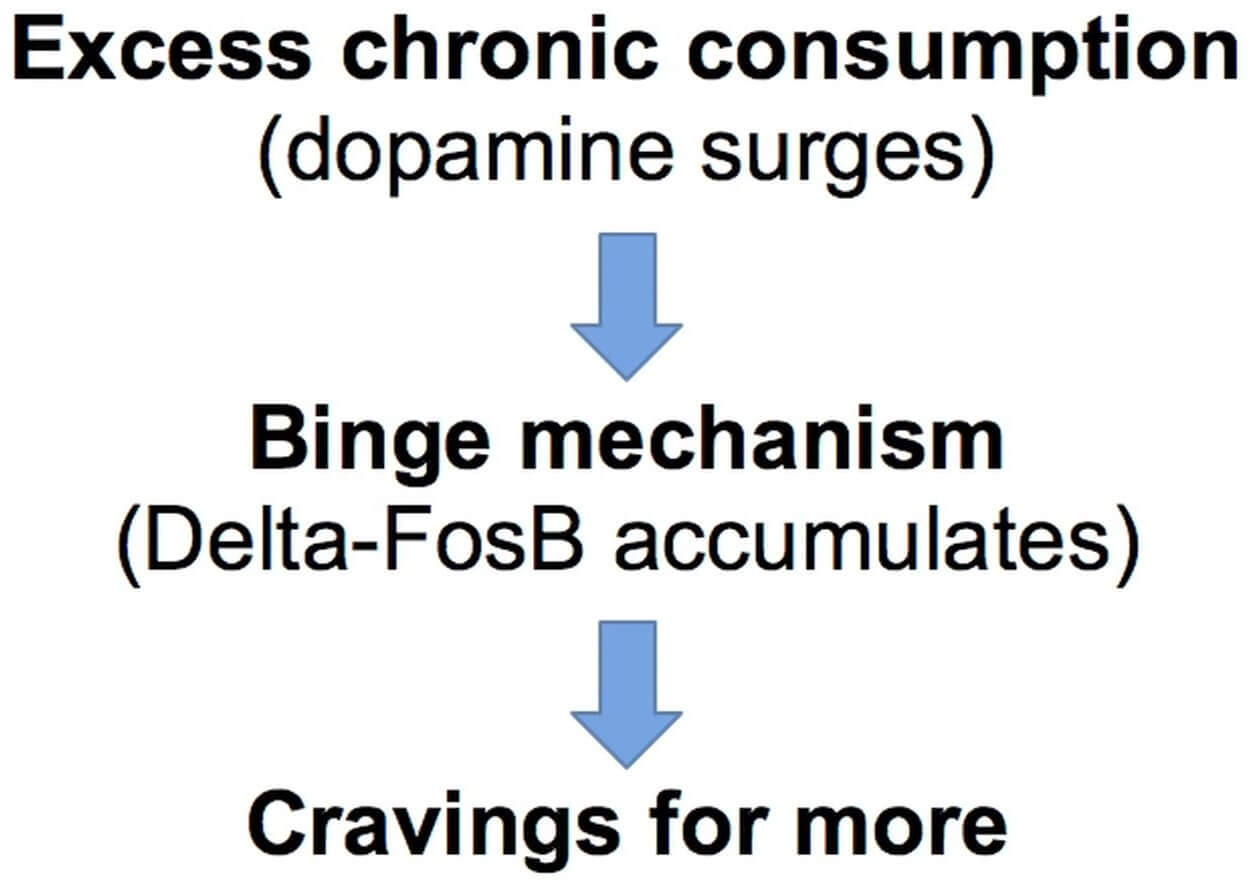
Fig 1: Consumption, binging and pleasure centers, dopamine and reward mechanism.
The lower the dopamine the more compulsive eating gets out of control: The research carried out by professor Paul J. Kenny lasted for three years and found that in obese animals the levels of dopamine D2 receptors were significantly lower compared with the animals that were fed a healthy diet. When the scientists knocked down D2 receptors even more the compulsive addictive eating behaviour dramatically accelerated and spiralled out of control. The addictive changes were so bad that when the animals were totally cut off from junk food they refused to eat anything for about two weeks; a behaviour that is very similar to what happens in human drug addicts.
A Long time ago Stanton Peele and Richard DeGrandpre in 1998 in their Addiction Research article note raised the bell about the addictive effects on drugs and at that time it was significant finding that when rats and monkey were given drugs they preferred cocaine to food literally drugging themselves until death or near death.
However on the subject of food addictions, unfortunately, there are still professionals who don’t understand that fast foods are completely changing our body bio-chemistry, the way our brains process things using the neurotransmitter dopamine and other substances , making it very addictive in the clinical sense. This profound change in our body bio-chemistry literally puts fast food addiction at the same level with heroin, cocaine and morphine addiction, so it requires a very comprehensive, integrated approach in order to professionally and successfully address it.
To cheat or not to cheat? The strategy it is about creating a sustainable and balanced bio-chemistry, consistent hormonal balance and positive changes throughout the whole body; this is what makes real difference for our mood, energy levels and our benefit based, – weight loss programme. In my experience (supported by medical literature scientific studies) at the time when a client is struggling with food addiction it isn’t advisable to suggest using any cheating meals/days options due the risk of relapse that will be really high.
When a relapsing event may happen this it will feed back the addiction reinforcing it and therefore making it much harder to get rid of it. A relapse can also throw out through the window the hormonal balance that was achieved with loads of hard work.
Instead cheating meals or cheating days professionals should focus feeding the client with an appropriate AND individualised natural nutrition approach required to cause massive changes in the client bio-chemistry addictive patterns, so that addictions WILL lose terrain and start to disappear.
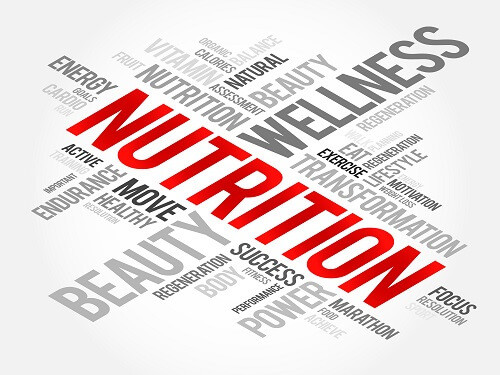
Feeding an addiction back into the system through the back door of cheating days it isn’t the best course of action a nutrition professional could take.
The graph below shows that the same addictive mechanism is shared by fast food, cocaine and heroin.
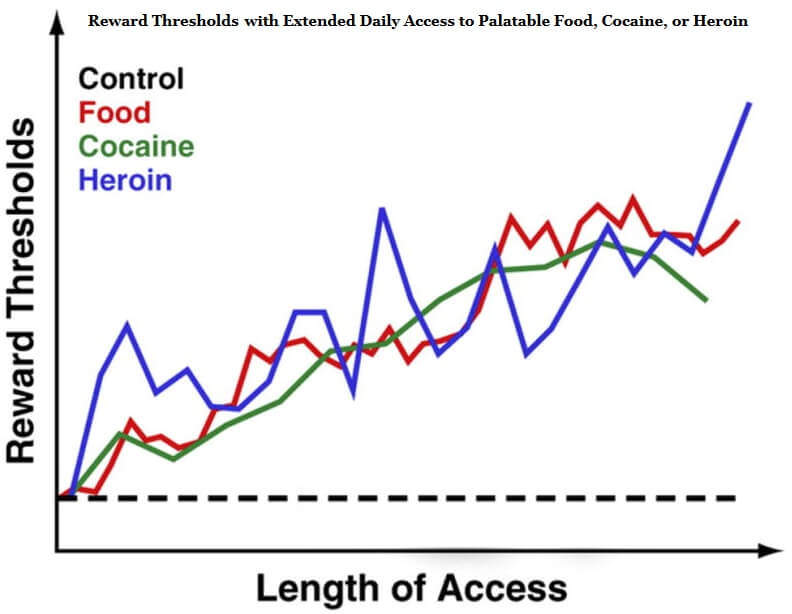
Fig 2: Reward threshold with extended daily access to Palatable Food, Cocaine, or Heroin
Current science regarding addictions focuses on very complex scientific molecular mechanisms with long bio-chemistry explanations that are not very suitable for easy understanding; they are complicated and at times very difficult to understand and so I will try to simplify it for you in the next article.
One-on-one tailored to your challenges, individualities, targets and goals
Comprehensive Nutritional Consultation and Advanced Lifestyle Assessment
Click here and BOOK your CONSULTATION TODAY
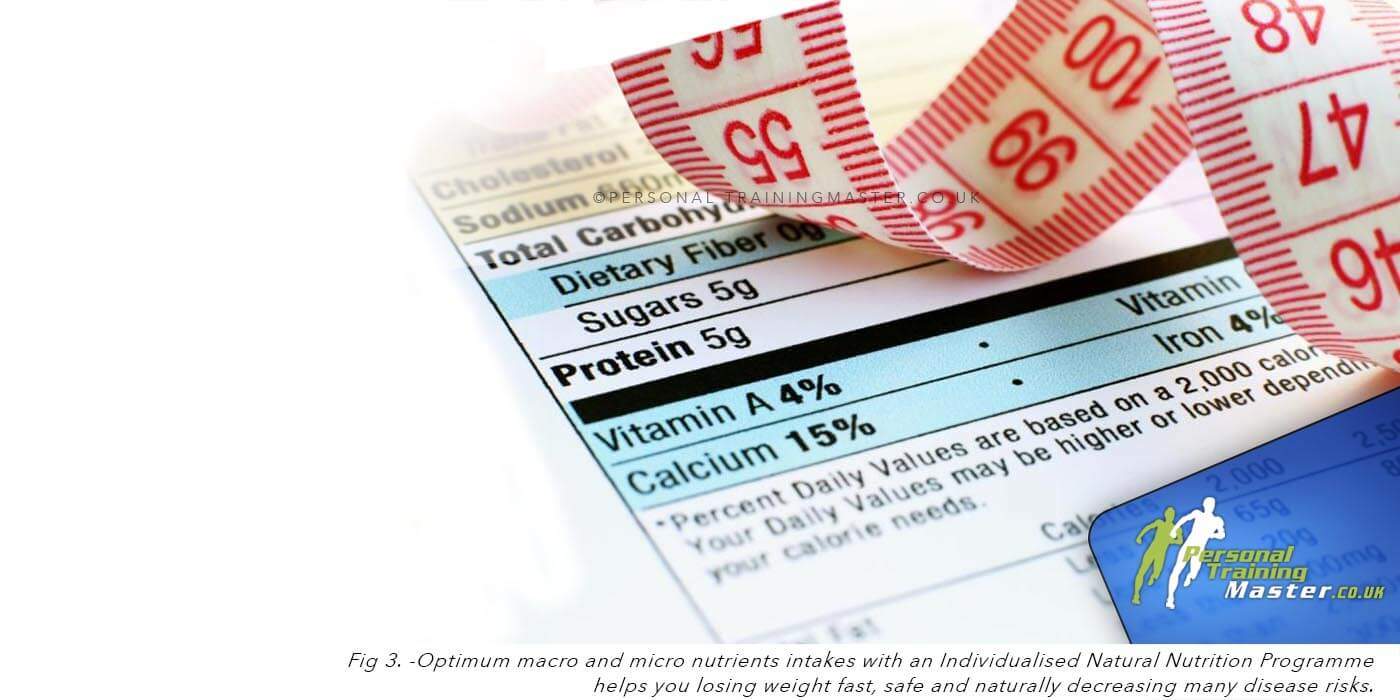
If you desire succeeding in beating dangerous addictions and weight gains or low energy levels and live a vibrant day to day lifestyle at the peak of your fitness, I can professionally work with you to design your completely individualised nutrition plan addressing your challenges, individual requirements, targets and goals.
Book your Comprehensive Nutritional Consultation to get your FREE BONUS TODAY
Advanced Lifestyle Assessment consultation – YOUR BONUS
THE BONUS is AVAILABLE ONLY TODAY
Click here and BOOK your CONSULTATION TODAY
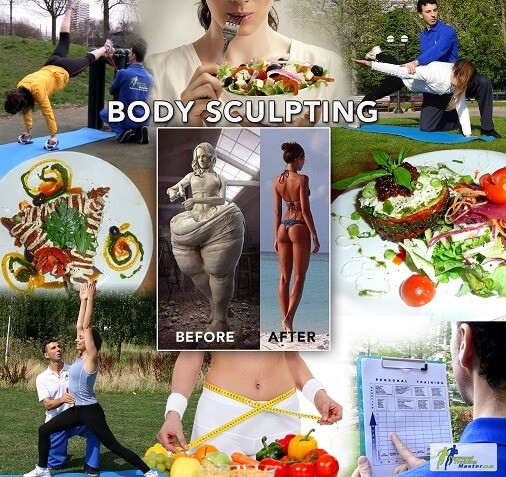
BEAT ADDICTIONS and ACHIEVE your BODY TRANSFORMATION
Click here and BOOK your CONSULTATION TODAY
References:
1. Scripps Research Associate – Journal Nature Neuroscience
2. Taylor VH, Curtis CM, Davis C: The obesity epidemic: the role of addiction. CMAJ 2010;182:327-328.
3. Volkow ND, Wang GJ, Telang F, et al: Low dopamine striatal D2 receptors are associated with prefrontal metabolism in obese subjects: possible contributing factors. Neuroimage 2008;42:1537-1543.
4. Davis C1, Curtis C, Levitan RD, Carter JC, Kaplan AS, Kennedy JL. Evidence that ‘food addiction’ is a valid phenotype of obesity. Appetite. 2011 Dec;57(3):711-7. doi: 10.1016/j.appet.2011.08.017. Epub 2011 Sep 3.
5. Goodman A. Neurobiology of addiction. An integrative review. Biochem Pharmacol. 2008 Jan 1;75(1):266-322. Epub 2007 Jul 27.
6. Ifland JR1, Preuss HG, Marcus MT, Rourke KM, Taylor WC, Burau K, Jacobs WS, Kadish W, Manso G. Refined food addiction: a classic substance use disorder. Med Hypotheses. 2009 May;72(5):518-26. doi: 10.1016/j.mehy.2008.11.035. Epub 2009 Feb 14.
7. Volkow ND1, Wang GJ, Tomasi D, Baler RD. The addictive dimensionality of obesity. Biol Psychiatry. 2013 May 1;73(9):811-8. doi: 10.1016/j.biopsych.2012.12.020. Epub 2013 Jan 29.
8. Julia Reinholz1*, Oliver Skopp12, Caterina Breitenstein, Iwo Bohr1, Hilke Winterhoff2 and Stefan Knecht1. Compensatory weight gain due to dopaminergic hypofunction: new evidence and own incidental observations. 1 Department of Neurology, University of Muenster, Albert-Schweitzer-Strasse 33, 48129 Muenster, Germany . 2 Department of Pharmacology and Toxicology, University of Muenster, Domagkstrasse 12, 48149 Muenster, Germany
9.Schulte, E. M., Avena, N. M. & Gearhardt, A. N. Which foods may be addictive? The roles of processing, fat content, and glycemic load. PLoS One 10, e0117959 (2015).
10. Taubes G . As obesity rates rise, experts struggle to explain why. Science. 1998 May 29;280(5368):1367-8. -As obesity rates rises, experts are struggling to explain why
11. Wright SM1, AronneLJ. Causes of obesity. Abdom Imaging. 2012 Oct;37(5):730-2. -Causes of obesity
12. Ashley N. Gearhardt, M.S., M. Phil,1,*Marney A. White, Ph.D., M.S.,2 and Marc N. Potenza, M.D., Ph.D.2,3 Binge Eating Disorder and Food Addiction. Curr Drug Abuse Rev. 2011 Sep; 4(3): 201–207. -Binge eating
13. Gearhardt AN1, Corbin WR, Brownell KD. Preliminary validation of the Yale Food Addiction Scale. Appetite. 2009 Apr;52(2):430-6. doi: 10.1016/j.appet.2008.12.003. Epub 2008 Dec 11. -Yale Food Addiction Scale
Disclaimer: This website and all its content is to be used for information purposes only. This website or any of its content or links to third parties does not diagnose, advise, treat or cure any ailments, illness or disease.
You agree to hold harmless the owner of this site for any action taken on your own without consulting your medical doctor first by using the information on the website for diagnostic, treatment, or any other related purposes. This is not medical advice. If you are suffering from any illness, disease or ailments please contact your doctor first and immediately.



